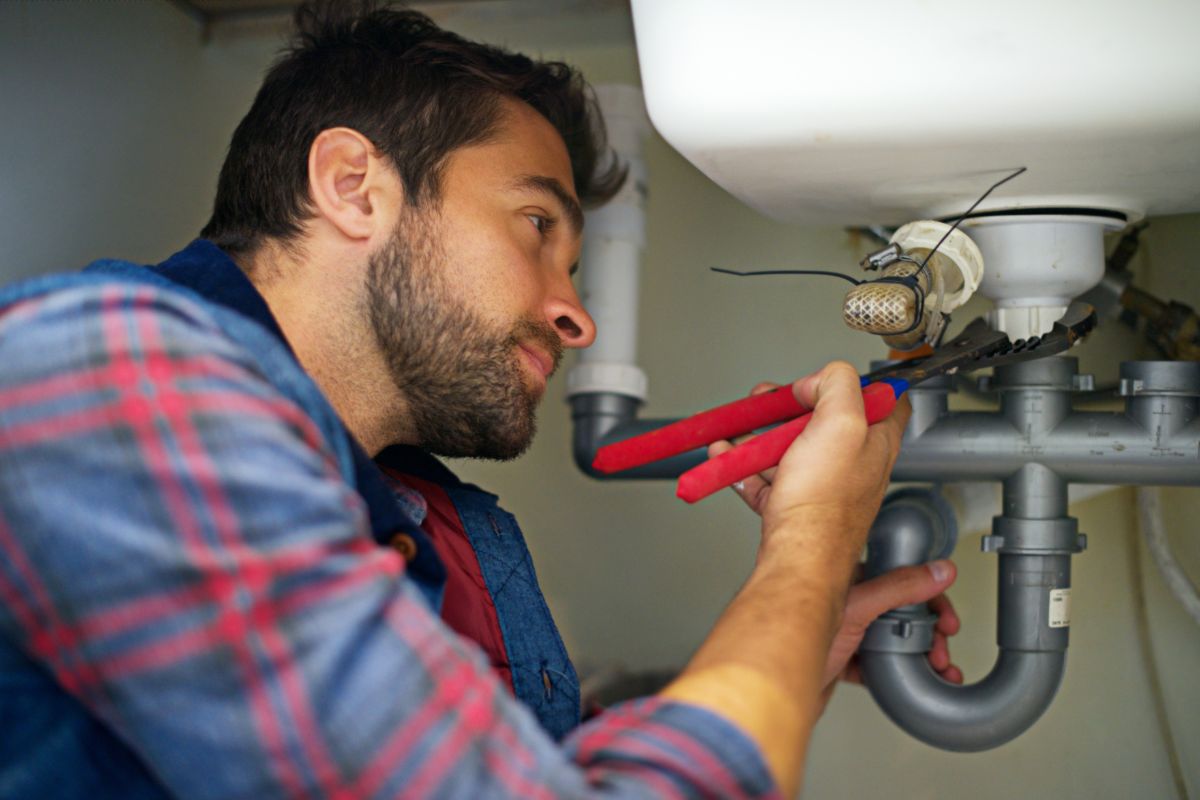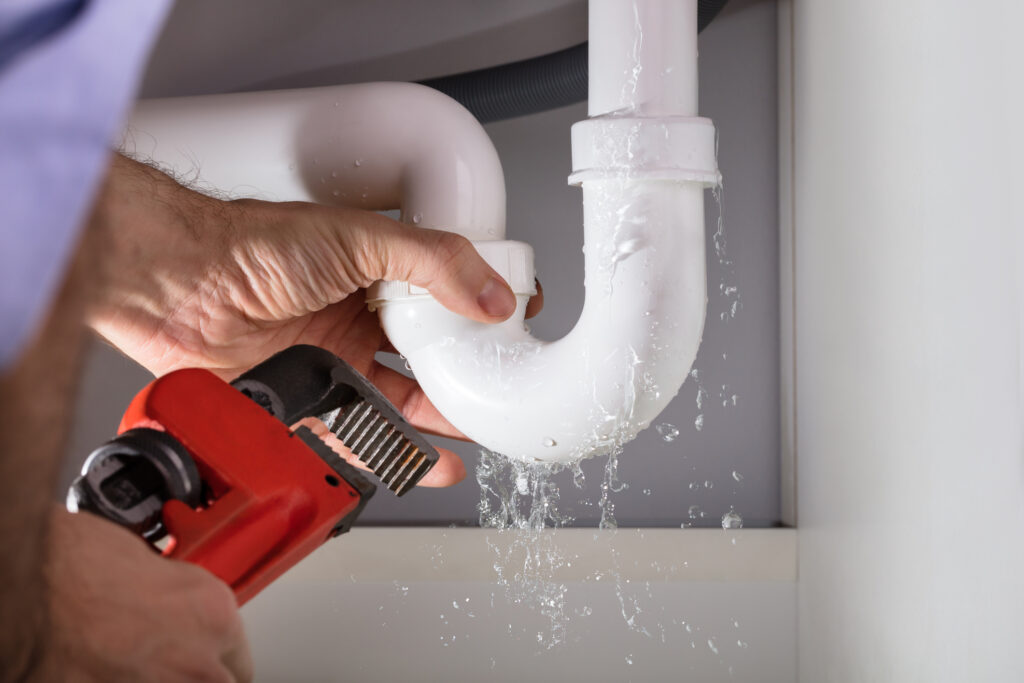Steps to Handle Emergency Plumbing Issues Before Expert Help Arrives
Steps to Handle Emergency Plumbing Issues Before Expert Help Arrives
Blog Article
The content further down pertaining to What to Do During a Plumbing Emergency is totally remarkable. Try it and draw your own personal assumptions.

Pipes emergency situations can strike at any moment, causing tension and prospective damages to your home. Whether it's a ruptured pipe, a blocked drainpipe, or a dripping tap, knowing exactly how to handle the scenario till a professional plumbing shows up can conserve you from more complications. This article offers necessary emergency situation pipes pointers to aid you minimize damages and regain control during a plumbing crisis.
Turn Off the Supply Of Water
The primary step in any type of pipes emergency situation is to shut down the supply of water. For localized issues, such as a dripping tap or bathroom, shut off the valve near the component. When it comes to a major leak or ruptured pipeline, find your home's main water shut-off valve and transform it off promptly. Understanding the location of these shutoffs ahead of time can save valuable time throughout an emergency situation.
Turn off Your Water Heater
In particular emergency situations, such as a burst pipeline, it's smart to turn off your water heater. This avoids getting too hot or damages to the system when water stops flowing. Turn off the power supply to the hot water heater (electrical or gas) and allow it cool off to avoid potential threats.
Momentarily Quit a Burst Pipe
A ruptured pipeline can result in significant water damages in mins. To reduce the issue:
Call a professional plumbing professional promptly to deal with the trouble completely.
Have an Emergency Pipes Set
Prepare a basic pipes emergency set to handle small concerns successfully. Your set should consist of:
Having these devices accessible can make a considerable difference in your capability to manage emergency situations.
Unclog Drains Securely.
A clogged drain can be a frustrating and untidy issue. Right here's how to tackle it:.
If these methods don't work, avoid utilizing extreme force, as it may intensify the obstruction.
Handle Overflowing Toilets.
An overruning commode can create prompt disorder. Below's what you need to do:.
Address Small Leakages with Short-lived Solutions.
Little leaks can promptly come to be significant troubles if left unchecked. Use these temporary fixes until professional help gets here:.
While these solutions aren't long-term, they can assist minimize water loss and damages.
Deal With Frozen Pipes Meticulously.
In chillier climates, icy pipes are an usual emergency. If you suspect an icy pipe:.
Know When to Call a Specialist.
While quick fixes can help momentarily, particular pipes issues require immediate professional focus. Call a plumbing professional if:.
Without delay speaking to a professional ensures the issue is dealt with properly and stops further issues.
Avoid More Damages.
Taking quick action to lessen damages can save you time and money over time. Right here's just how:.
Final thought.
Plumbing emergency situations can be frustrating, yet with the appropriate knowledge and tools, you can manage the situation efficiently up until assistance shows up. By shutting off the water system, resolving tiny leakages, and making use of short-lived solutions, you can decrease damages and maintain your home safe. Bear in mind, these pointers are short-lived remedies; constantly get in touch with a qualified plumber to handle the origin of the trouble. Prep work and fast thinking are your finest allies in any plumbing emergency situation.
8 Helpful Tips for Managing Plumbing Emergencies at Home
If your plumbing system hasn’t failed once, wait for it because almost everyone has a story to tell. Sometimes, it could be simple emergencies such as a leaking pipe, a blocked cistern, or even a big burst pipe. In situations like this, you need to have some handy tips to save you some money and from possible damages.
Take care of minor issues early.
Sometimes, you could have avoided an emergency by taking proactive measures while it was still early. Some major plumbing emergencies can be a result of an ignored minor issue. We recommend that you have items like plumbing tapes and other related items. A plumbing tape can allow you to manage minor leaks before the plumber arrives.
Cut off the water supply.
This tip is essential in almost any type of leakage problem. For problems like minor leakages in the toilet or kitchen, turn off the supply that takes water to the affected pipes. If the leakage is a major pipe, you must shut off the supply valve to the entire building. This will help you avoid flooding your home and neighbors if you share a flat.
Know your plumbing system
Folks typically move into a new apartment without understanding the water supply around the building. This can prove disastrous if a water emergency arises and the plumber is far away. The previous tip will prove useless if you don’t practice this one. More importantly, know where your water shut-off valve is located – you’ll need that knowledge to prevent potential home floods.
Have some common handy tools
There are lots of plumbing emergencies that you can handle without hiring a plumber. That’s why you must keep some tools available always. Some tools that you can use to fix simple plumbing emergencies easily include plumbing tapes, screwdrivers, thread seal tapes, plungers, pliers, tape measures, and rubber gloves.
Insulate your pipes from cold
You’ll save yourself from many plumbing expenses if you protect your water pipes from the cold. This is because of the harmful effects that cold weather can have on your pipes. During winter, your pipes can burst from being overly expected to freezing temperatures. So, make sure insulators are there to keep the pipes working correctly.
Avoid practices that will clog your toilet.
Many people indulge in practices that can damage the plumbing system of the entire building. One of these is when they use their toilet to dispose-off garbage. They flush all kinds of things, such as paper towels, bandages, hairs, female sanitary products, etc., down the toilet. This will block your toilet in the long run, incurring unnecessary expenditures. Dump such waste in the trash instead.
Check your dials regularly.
Sometimes, there could be leakages in your home without noticing them in time. So, constantly monitor your water meter dial. If the dial is reading when there is nobody using water, this is an indicator that there is leaking. Check for leaks immediately. Call a plumber as soon as possible if you can’t find any.
https://www.constructionplacements.com/8-helpful-tips-for-managing-plumbing-emergencies-at-home/

Do you enjoy reading about ? Post a remark down below. We will be glad to know your opinions about this page. In hopes that you come back again in the future. In case you appreciated our post plz remember to pass it around. We truly appreciate reading our article about .
Call Today Report this page